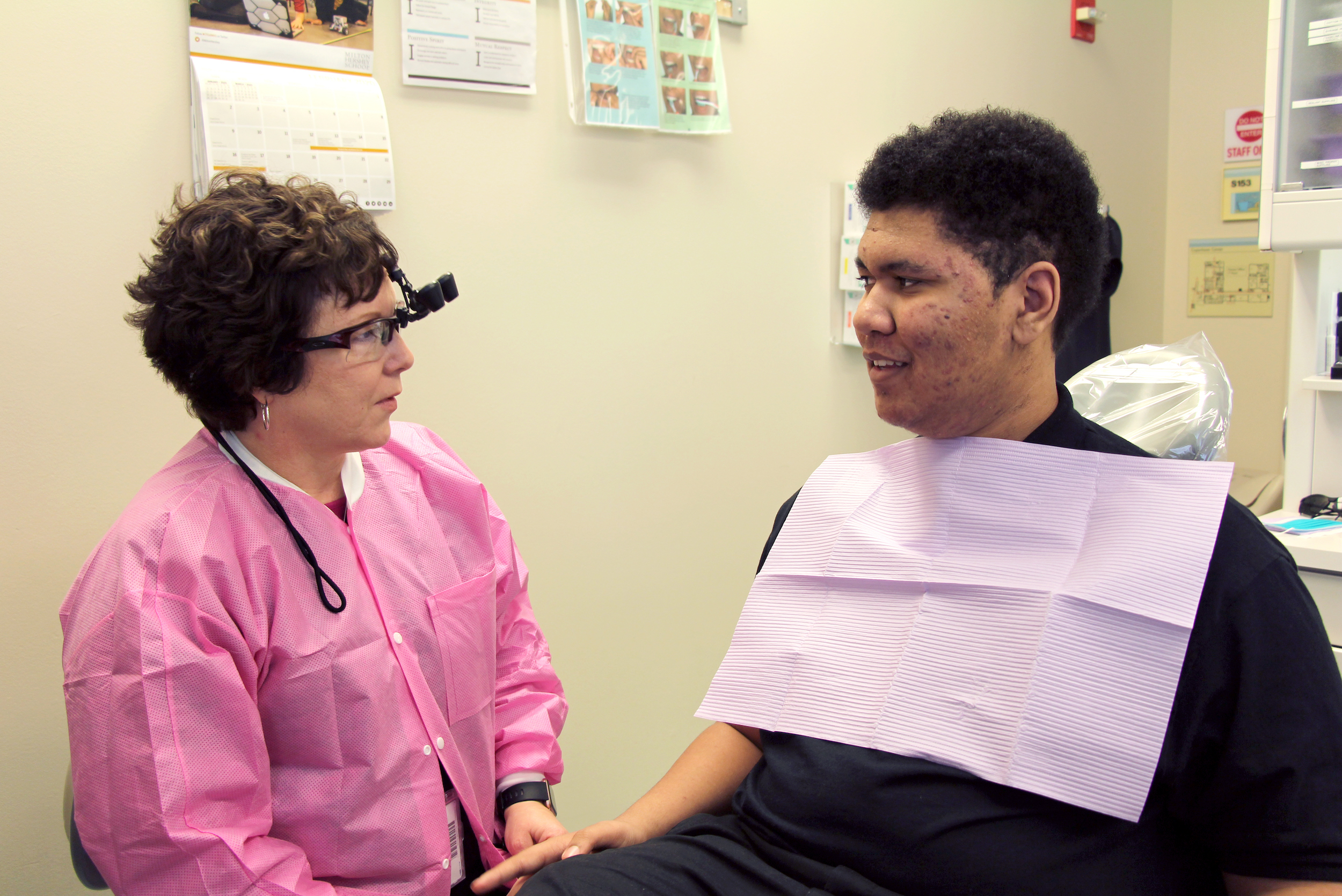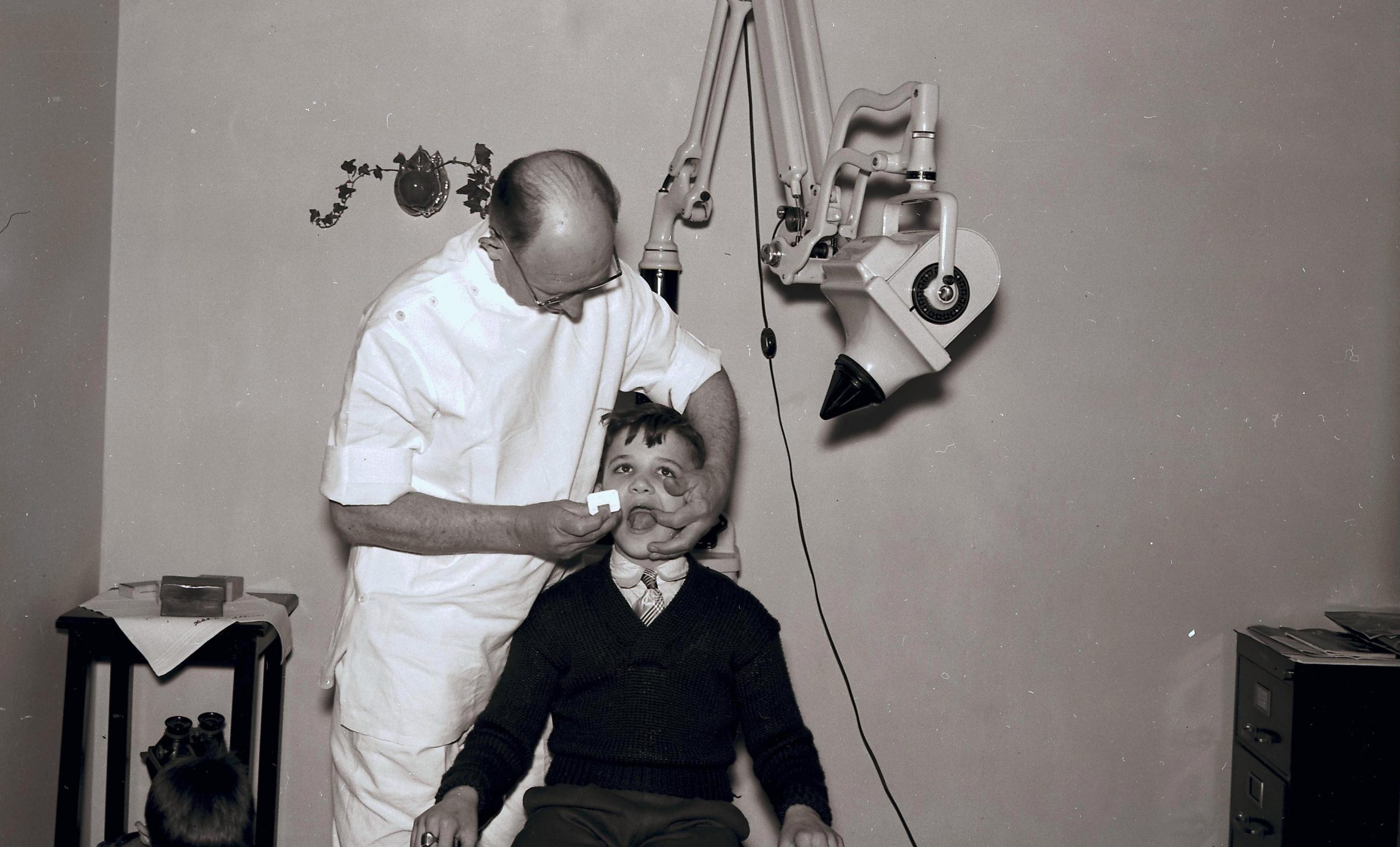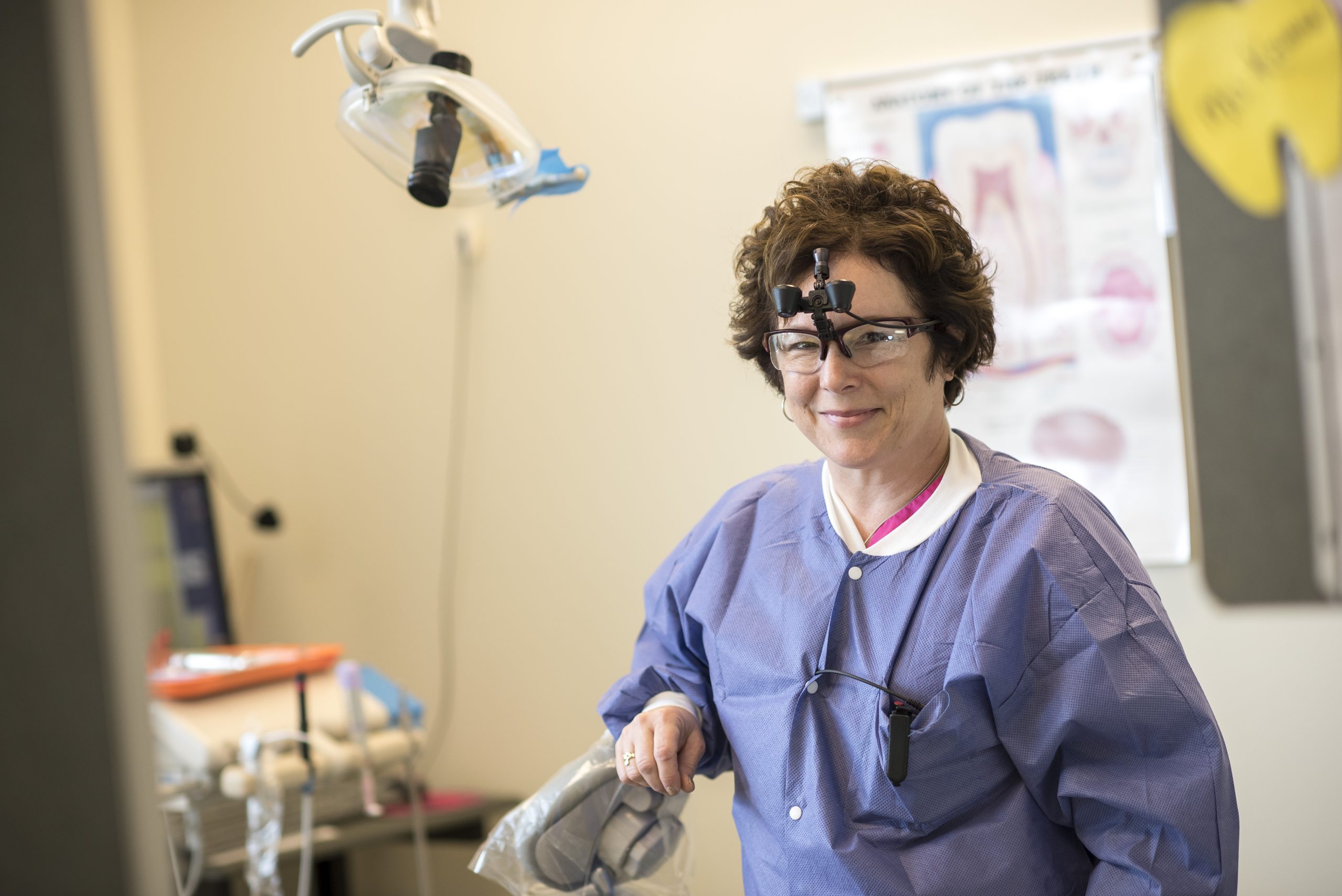The Importance of Oral Health—Providing Comprehensive Dental Services at Milton Hershey School
Featuring Karen Koussis, MHS Dental Hygienist
Walking into Copenhaver Center, it’s hard to miss the tooth flag hanging off the wall. It marks the entrance to the dental clinic for Milton Hershey School’s high school students. On an average day, the clinic will see 30 students for primary dental services and 35 students for orthodontic care.
It’s a service that MHS students, like sophomore Davontae Cooper, are thankful to have.
Before he enrolled at Milton Hershey School, Davontae said he knew it was “important to keep your mouth in good shape because your oral health affects your overall health, but I didn’t go to the dentist regularly because it was expensive.”

According to the latest report on oral health in America by the National Institute of Dental and Craniofacial Research, oral health and general health go hand-in-hand. In fact, research shows that chronic oral infections can lead to heart and lung disease, stroke, and even low-birth-weight premature births. However, many people do not understand the correlation between oral health and overall health, and as a result will not seek out dental services because they do not think they have a problem. And, children living in poverty are on the front lines of battling oral disease due to lack of access to care, limited income, or lack of insurance.
“A smile can tell a lot about you,” said Karen Koussis, one of Milton Hershey School’s dental hygienists. “Good oral hygiene is about more than just a beautiful smile. The health of your mouth mirrors the condition of your body as a whole. At Milton Hershey School, we promote disease prevention by providing oral hygiene education and supplies to all students and student homes.”
Encouraging Good Oral Health at Milton Hershey School

When Milton and Catherine Hershey founded Milton Hershey School in 1909, they recognized the importance of nurturing more than just the mind of a student—but ensuring their most basic needs were met. It’s written into the school’s Deed of Trust that “due regard shall be paid to their health.” Early records show that students received four dental examinations each year performed by W.E. Vallerchamp, D.D.S. and his wife who were from Harrisburg, Pennsylvania. And, in 1934, Dr. Herbert K. Cooper—Milton Hershey’s personal dentist from Lancaster, Pennsylvania—became director of the school’s dental clinic.
Learn More About the History of Dental Care at MHS
Fast forward to today, and MHS continues to provide comprehensive preventive, restorative, and orthodontic dental care to more than 2,000 students ages pre-K through 12th grade in three state-of-the-art clinics located within each division of the school. According to the school’s 2018-19 Brown and Gold Annual Report, 14,626 dental visits occurred during the 2018-19 school year—all at no cost to students’ families.
“I like that at Milton Hershey School they do anything that you need for free,” said Davontae.
Milton Hershey School’s dental staff includes dentists, orthodontists, dental hygienists, dental and orthodontic assistants, and administrative staff. Beyond providing oral hygiene education, the team educates students on nutrition, emphasizes cavity prevention, and addresses oral disease and tooth decay. MHS students receive regular dental check-ups, x-rays, prophylaxis, fluoride treatment, and specialty dental health referrals, including oral surgery, endodontic, and periodontal and orthodontic therapy.
Learn More About Health and Wellness at MHS
“As a dental health professional, I feel blessed to be a part of a team that can provide optimal dental services to a high-risk patient population without the restrictions of cost and insurance coverage,” remarked Karen.

How to Maintain Good Oral Health
So, what can you do to maintain good oral hygiene? Here are four tips from Milton Hershey School’s Dental Services team:
- Brush your teeth for two minutes, twice a day. Making dental hygiene a habit the whole family does together can make it fun. Sing a favorite family tune or set a timer to get those two minutes in each morning and at night.
- Floss every single day. Be sure to add flossing time to your brushing routine each day. Brushing alone leaves 35-percent of your teeth untouched.
- Ensure you’re getting the proper nutrition and limit snacks. Maintain a healthy, balanced diet full of vitamins and minerals, like calcium. Limiting sugar intake is a great place to start and avoid constant snacking or grazing—this can help keep bacteria from forming on your teeth. Also, chew gum with Xylitol as the first ingredient after a snack and in between meals. This ingredient is a proven cavity fighting agent found in sugar free gums and mints.
- See the dentist regularly. Getting to the dentist is important. Scheduling regular appointments every six months ensures any issues that arise are caught early.


